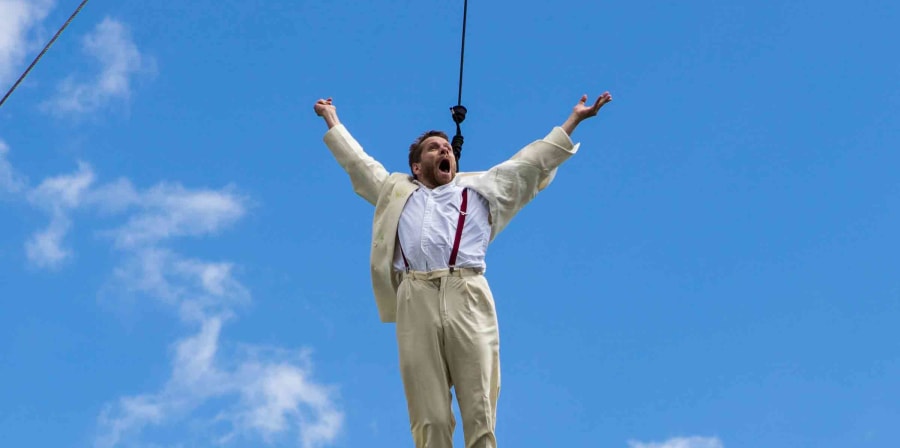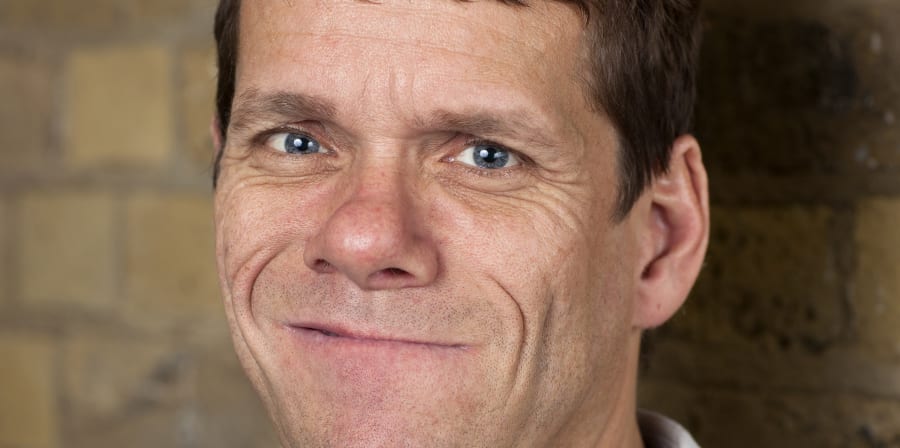Leading the way in accessibility for performing arts, with Jamie Beddard
- Written byUAL Awarding Body
- Published date 21 November 2022

We got the chance to speak to Jamie Beddard, one of UK’s leading disabled theatre practitioners. He is an actor, writer and Co-Artistic Director for Diverse City, a performing arts company where social justice and culture meet and Lead Artist for Extraordinary Bodies.
In this interview, we spoke to Jamie about his multi-faceted career so far, the barriers and the opportunities for the disabled in creative arts, and how teachers and learning institutions can lead the way in accessibility for the performing arts.
Do you consciously not specify yourself to an area as a performer, do you like to just be open to everything?
I think as a performer you need to do a lot of different things, and as a disabled performer, the opportunities - well when I was younger there weren’t many opportunities there - you needed to diversify.
I mean I did a lot of training, I did a lot of workshops, I need a wider portfolio.
I wanted to talk to you about how you joined the circus, how did that come about?
My co-director of Diverse City, Claire Hodgson, who I’ve known for 30 years. We met in a big community arts venue 30 years ago, when we were participants.
And now, it’s amazing to be leading a similar project with Claire. About 5 years ago, no, more than that, yeah it was 2012, Claire said “we’re gonna run away and join the circus.”
What do you believe organisations, institutions, and systems need to do to change?
I’m going to give a really simple example, if I’m in a wheelchair and I can’t get in your building because it’s got steps, your building is disabling me. If you put a ramp in, I’m no longer disabled.
There are only a couple of questions you need to consider. What are the barriers for people with disability, and once we know the barriers, how can we mitigate them?
Is it important to challenge yourself? To keep yourself moving, and evolving?
It is, I mean although I’m getting on a bit, but yeah, I guess challenge is the only way you develop.
It can be difficult, but… the last 2 years have been really challenging for everyone in different ways. Everyone’s been on their own journey.

Within your work that you do with Diverse City and Extraordinary Bodies, do you have a concept for a piece you want to produce? And do you have to adapt sometimes?
I mean in what we do, we do adapt, but I mean everyone in the world is different. If you’re working collaboratively you adapt. But we work, I mean in circus we make equipment for different bodies.
Yeah, a lot of teaching is about repeating what people do. I really don’t like repeating everything, I like people to find their own way to do stuff.
So, I mean we’ve all got unique bodies, and we’ve all got unique abilities. It’s about not copying everything, it’s about finding your own way that represents.
I mean we’ve all got unique properties.
So your part of your creative process is allowing the individual to take ownership of their role within it and make their own adaptions?
Yeah, we work collaboratively. For me teaching is about facilitating, there is an element of teaching but facilitating is more interesting to me, where your work can bring things together to get the best.
If you had any advice for young performers now, what kind of advice can you give them to help them stand out, to get into the industry?
Don’t rely on performance: think about other ways you can broaden what you do. Also, I mean it sounds really cliché but: you need to go for it. You need to go for it and you need to enjoy it. It’s a great thing to be in, but it can be difficult. You do need to be open. You do need to be vulnerable to be a good performer. You need to think, is there a combination of different things? And, it is important to thing about making your own work, and not to be reliant on a phone call.
Is there a provocation or an idea that you would like students to mull over?
Think of all the different people you can meet and work with, rather than working with people you know, repeating what you know is really boring. It’s about opening your eyes, and opening your ears, and opening your heart to difference.